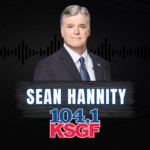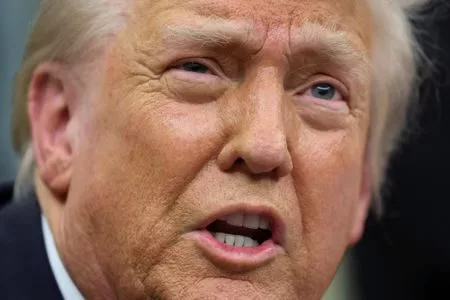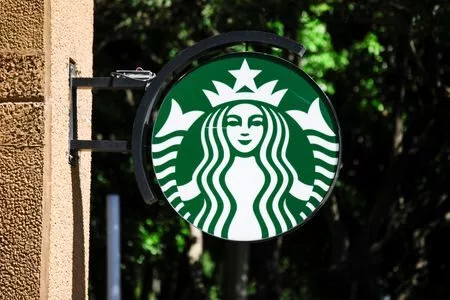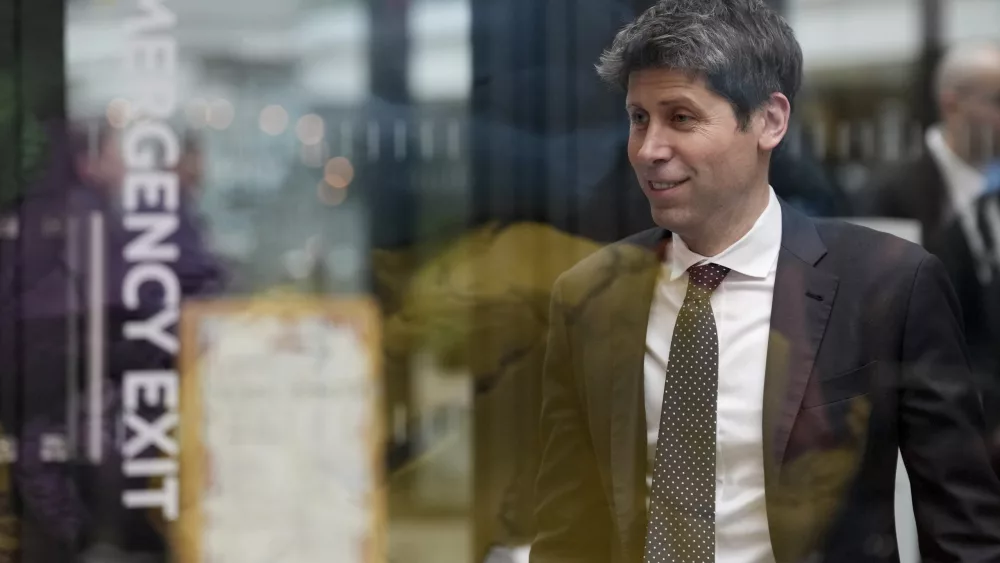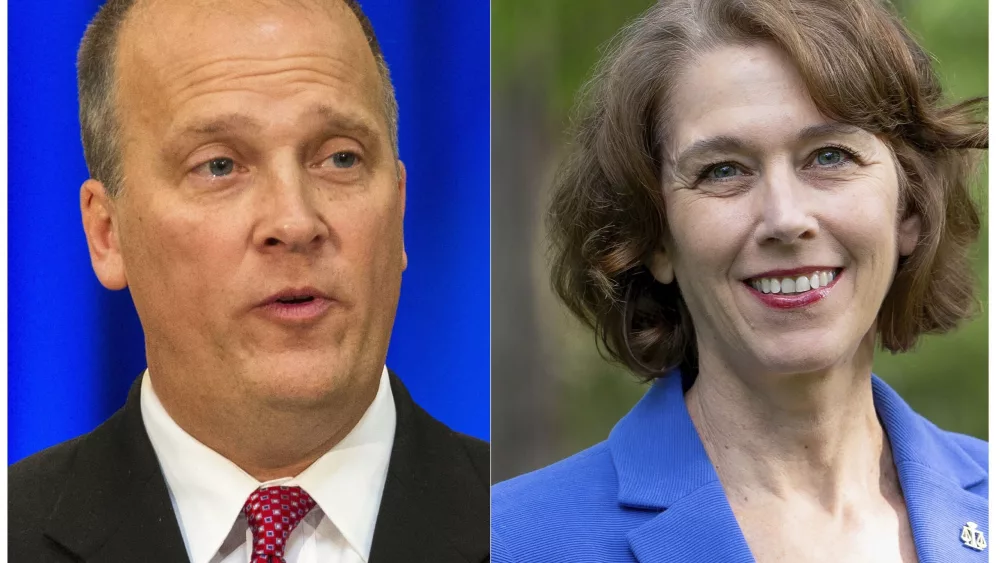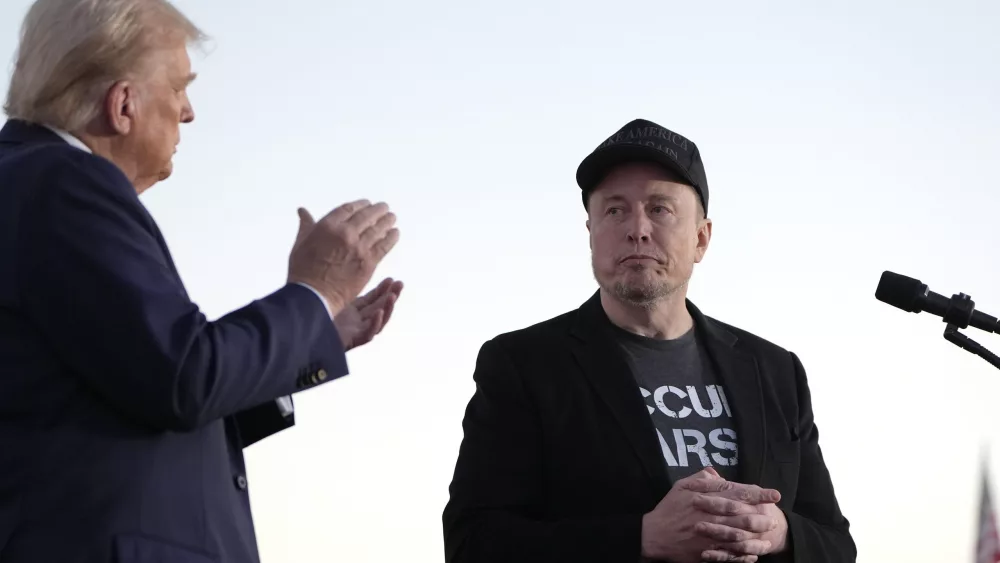(Reuters) – U.S. President Donald Trump has thrust himself onto the world stage, issuing ultimatums to friend and foe alike and insisting they jump to the tune of American interests or else.
His threats – from swingeing trade tariffs right through to outright resource grabs – are part of a transactional approach to diplomacy often accompanied by explicit demands.
Many of his targets have been quick to offer concessions. Some have been real, notably pledges to buy more American goods or invest in U.S. activities. In other cases they have been a repackaging of policy that was already going ahead, or moves with more symbol than substance.
The following picks through some of the detail of those responses since Trump’s January 20 inauguration.
AMERICAN BORDERS
The 10,000 National Guard troops which Mexico has sent to the border with the United States to work on migration controls and stopping the flow of drugs are clearly new additions to its security presence on the border.
That move was enough to prompt Trump to suspend his threat of steep trade tariffs last week. Most experts doubt whether the reinforcements will have a real impact, however, and they are reserving judgment for now.
In the case of Canada – which also won a reprieve on tariffs – it had already announced in December a C$1.3 billion ($909 million) investment on border security, targeting fentanyl, irregular migration and organized crime.
Announcing the pause in U.S. tariffs on February 3, Prime Minister Justin Trudeau referred to “a new intelligence directive” on crime and fentanyl-trafficking backed by C$200 million. He also committed to appointing a “Fentanyl Czar” – a new post whose occupant has yet to be named.
JAPAN
Japan’s hefty trade surplus with the United States has long irked Trump, who was quick to raise it with Prime Minister Shigeru Ishiba on his first White House visit last week.
While it is unclear whether Japan is in the firing line for tariffs, Ishiba signalled a readiness to favour U.S. interests by pledging to raise Japanese investment in America to $1 trillion and purchase U.S. gas, ethanol and ammonia.
The investments are likely to include a $100 million pledge that SoftBank Group CEO Masayoshi Son made in a meeting with Trump in December. Ishiba also mentioned new factory plans in the United States by Toyota Motor Corp. and Isuzu Motors.
Trump also announced what he called progress on Nippon Steel’s blocked $14.9 billion attempt to take over U.S. Steel. He said any bid must take the form of an investment rather than an outright purchase. It is still unclear how Nippon Steel and U.S. Steel plan to revise their proposed deal.
INDIA
Previously labelled by Trump a “very big abuser” on trade, India has long been keen to emphasise its readiness to open its economy – a message Prime Minister Narendra Modi will underline during his two-day visit to the United States this week.
“We don’t want to give anybody any signal that we would like to be protectionist,” Finance Secretary Tuhin Kanta Pandey told Reuters. “Our stance is that we don’t want to increase protection.”
India is considering tariff cuts in at least a dozen sectors, from electronics to medical and surgical equipment, and chemicals, to boost U.S. exports in line with New Delhi’s domestic production plans, government officials said. Modi may also propose increased U.S. energy and defence imports.
EUROPE SECURITY
Trump started haranguing European NATO allies on the need to step up their defence spending in his first term – with some effect.
NATO’s Secretary-General Mark Rutte said last week a new military spending pledge to be decided this year would be “considerably” higher than the target of 2% of national output which many NATO allies were failing to meet a decade ago.
The Ukraine war has clearly also focused minds in Europe on security needs. But it remains to be decided how governments with their stretched budgets will pay for the surge in defence spending.
Even more uncertain is what will come of Trump’s assertion that the United States must get a share of revenues from the future extraction of Ukraine’s deposits of rare earths and other critical minerals in return for supporting the war effort.
Ukraine floated the idea of opening its critical minerals to investment by allies last year and Ukrainian President Volodymyr Zelenskiy said in a Reuters interview last week he was ready to do a deal with Trump.
But Zelenskiy emphasised that Kyiv was not proposing “giving away” any resources, but offering a partnership to develop them jointly. It is also unclear how much of those resources lie on Russia’s side of the current frontlines.
(Reporting by Aftab Ahmed in New Delhi; John Geddie in Tokyo; Stephen Eisenhammer in Mexico City; Caroline Stauffer in Canada; Writing by Mark John; Editing by Hugh Lawson)
Brought to you by www.srnnews.com
